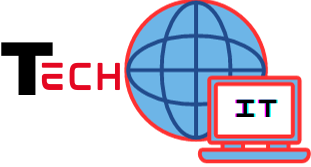Which cloud computing does Facebook use in 2023?
Do you also want to know which cloud computing does Facebook use ? So first let’s understand about cloud computing.

What is cloud computing?
Cloud computing means storing and having access to the statistics and applications on remote servers which are hosted on the internet as opposed to the computer’s hard pressure or neighborhood server. Cloud computing is also known as internet-based computing, it is a generation wherein the resource is furnished as a service via the internet to the person. The statistics that is saved may be files, pix, documents, or every other storable record.
Some operations which can be performed with cloud computing are –
Infrastructure-as-a-Service (IaaS) and Platform-as-a-Service (PaaS) .
Software-as-a-Service (SaaS) .
Hybrid cloud and multicloud
Test and development.
Big data analytics.
Cloud storage.
Disaster recovery and data backup.
Table of Contents
Which cloud computing does facebook use?
Facebook uses Amazon Elastic Compute Cloud (Amazon EC2) to host its applications, which presents resizable compute capability inside the Cloud.Meta, previously referred to as fb, has chosen AWS as its lengthy-term strategic cloud issuer for its Pytorch gadget-mastering framework and for destiny acquisitions that already run on AWS’s servers. builders can host their Facebook packages on AWS to get admission to a reliable, scalable, and value-powerful compute infrastructure. In 2017, fb introduced plans to transport WhatsApp off IBM’s public cloud.
Types of cloud computing?
Public Cloud:
Description:
Public cloud offerings are owned, operated, and maintained with the aid of 1/3-birthday party cloud carriers. They offer a extensive range of on-demand computing resources and offerings over the net, which are on hand to the majority or a huge consumer base.
Pros:
Value-efficiency: Pay-as-you-move pricing reduces prematurely fees.
Scalability: easily alter resources primarily based on call for.
Worldwide reach: accessible worldwide.
Controlled services: carriers manage maintenance and safety.
Diverse services: gives a ramification of services and programs.
Cons:
Protection concerns: Shared infrastructure raises protection concerns.
Constrained control: less manage over bodily infrastructure.
Downtime chance: relies on company uptime.
Statistics privateness: statistics stored on company’s servers.
Non-public Cloud:
Description:
A personal cloud is dedicated to a single enterprise, offering a cozy and customizable cloud environment. it can be hosted on-premises or by using a 3rd-party provider.
Pros:
Superior protection: gives more manipulate over protection.
Customization: tailor-made answers for particular wishes.
Data privateness: touchy facts stays under manage.
Predictable performance: resources aren’t shared.
Cons:
Higher costs: requires significant capital funding.
Restrained Scalability: Scalability can be more tough.
Maintenance Overhead: obligation for upkeep.
Decreased Accessibility: typically much less available.
Hybrid Cloud:
Description:
Hybrid cloud combines factors of public and private clouds. It permits information and programs to be shared among them, providing flexibility and manage.
Pros:
Flexibility: Combines benefits of public and private clouds.
Safety control: sensitive data can be kept non-public.
Scalability: Leverage public cloud for peak needs.
Chance Mitigation: more suitable redundancy options.
Cons:
Complexity: managing throughout exclusive environments.
Cost management: monitoring fees may be complicated.
Integration demanding situations: ensuring seamless integration.
Multi-Cloud:
Description:
Multi-cloud entails the use of services from more than one cloud providers to meet various enterprise wishes. It objectives to avoid vendor lock-in and leverage specialized offerings.
Pros:
Keep away from supplier Lock-In: decreased risk of dependency on one issuer.
Specialized services: get admission to particular issuer abilities.
Enhanced Redundancy: progressed availability and healing.
Negotiation Leverage: aggressive pricing and fine.
Cons:
Complexity: managing multiple cloud environments.
Value management: tracking fees across providers.
Data Governance: ensuring consistent requirements.
Skill requirements: understanding in more than one systems.
Cloud Hosting vs. Web Hosting:

With traditional internet server website hosting, the consumer is confined to the bodily constraints of that server wherein your internet site is hosted. however that’s now not the case with cloud hosting. right here there’s a completely unique configuration that lets you pull information from a community of more than one servers. it is more like a cloud (various remote servers) tapping into an underlying community of real bodily servers to get admission to stored data. This acts as an cheap hosting answer this is dependable as well as scalable.
In old-school hosting, all your internet site’s records and files are saved on a unmarried server. on every occasion a visitor opens your web site, these files are drawn from the unmarried server and offered to the person. whereas in cloud web hosting, your website’s resources are scattered throughout multiple digital servers and that they may be derived successfully as and when wanted.
Is Cloud Computing is safe from Cyber Attacks?
Imagine cloud computing as a large, relaxed vault for your digital stuff. The business enterprise that owns the vault (the cloud issuer) builds sturdy walls and hires security guards to shield it. but, just like in actual existence, you also have a obligation to preserve your belongings safe.
Right here’s the way it works:
Vault protection (Cloud issuer): The cloud issuer does lots to keep your stuff safe. they’ve high-tech security structures, firewalls, and teams of specialists to observe for any terrible actors trying to break in.
Your responsibility: You, as the person, have a position too. You want to ensure you lock your virtual “door” well. this means setting robust passwords, using locks like encryption to preserve your statistics secure inside the vault, and maintaining an eye out for any unusual activity (much like you’d appearance out for strangers at your front door).







